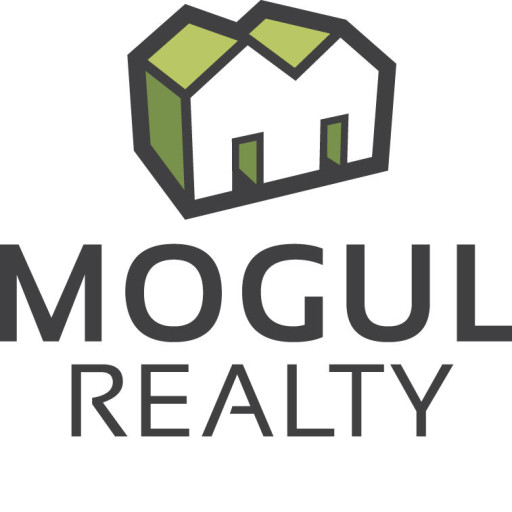Somewhere Between a Facilitator and a Mentor
This article is, I admit, a bit inherently biased — I’ve built my businesses around providing the most I possibly can to other investor clients, and what follows is basically a list of the highlights an investor-friendly agent can offer. I want everyone to have the best possible experience in their investing, so the outline below is a hypothetical someone who is, effectively, a mentor you work with.
The reason for that should be obvious: you’re best off working with someone who understands your needs and position and who also has the knowledge and experience to point you in the right way through each step of the process. That’s best found in another investor, but that might not always be who you are able to work with. So, my writeup here includes a series of degrees, must, better, best, to help explain the differences in each of these skills.
Now, to the first point:
1. Market Knowledge
This is an obvious place to start, as it’s the first place you actually will start when you’re looking for a property. An agent who knows where to find the asset class you’re considering, how those assets will differ in different parts of a city, and so forth, will bring an immediate time savings to your pursuit. There’s no point looking for a cash flowing 4-family building in an area where they sell for $200,000 more than you can afford and that only cash flow for an owner who bought the property 30 years ago before the neighborhood values took off.
You might have settled on an asset class, or, perhaps, you’re after the financials in whatever shape they arrive in. Same case: your agent should have some working knowledge of what areas typically have what return and, one better, with what amount of effort to attain that return.
- Must – Has some experience on deals in the asset class you’re considering
- Better – Has been involved in numerous deals in the asset class you’re considering over a number of years
- Best – Has personally invested in the asset class you’re considering over a number of years
2. Rehab Knowledge
After you’ve found a few properties you want to look at, the next step will be figuring out what it will take to get them positioned where you want in the market. You might want to find full-gut rehab properties or ones that only need a cosmetic rehab, but either way if you don’t have the knowledge of what those two conditions require then you’ll lean on your agent to fill in some of the gaps in some way. Inspections point out what’s wrong, not what can be achieved, so your agent should at least give you some contacts to bid out different finishes.
The next step is to talk about rehabs and renovations, and here there’s always imagination involved. What’s best, however, is when you can take your head out of the clouds and plant some numbers down on a spreadsheet. The better agent here can price out the rent ranges different amenities tend to fetch, i.e., a unit with central A/C vs. one with window units, or a unit with an updated kitchen and bath vs. one with an interior from 1970. The ideal here is an agent who not only can tell you what those amenities fetch in rents but also what those jobs cost; even better if they can give you a rough bid for the property you’re considering. Examples: “A cosmetic rehab here will probably get you another $100 in rents and cost $2,000-$3,000” and, the best “a cosmetic rehab here will take about 10 hours of work and $500 in materials and get you another $100 in rent.” The difference is subtle, but having a rough estimate of the job upfront will help you budget and keep costs in control; this is one space where a knowledgeable agent/investor-agent can really shine.
- Must – Contacts for recommended contractors
- Better – Knowledge of market expectations and rent ranges for rehab finishes
- Best – Personal experience doing rehabs and knowledge of dollar value return on certain items
3. Strategy Knowledge
An agent that has only ever worked with primary residence buyers won’t really know how to help you find an investment property: the goals and mindsets are too different. Additionally, investing is an umbrella term for many different ways someone can enter and exit a property. To be of real use your agent should at least be familiar with the nuts and bolts of the strategy you’re considering, be it buy and hold, flipping, or whatever else. Again, the best case is an investor who has used multiple strategies themselves in their own investments. Not only will they be able to understand your reasoning better but they’ll be able to offer their own advice from past experience.
- Must – Working knowledge of different investing strategies
- Better – Experience working with investors using multiple different strategies
- Best – Has personally used various strategies in their own investing
4. Trust/Reputation
Now we’re getting into things that are more interpersonal and hard to quantify when selecting an agent. In working with an agent you are required to trust their judgment and their ability to work for you and your interests. How that manifests in a working relationship starts with the start: Are they someone who has strong recommendations? You can see those online, in most cases, these days. A personal recommendation is also another great starting point.
As you continue to work with your agent you should never feel that they’re hiding something from you or that you have to pry certain information from them. While you might not enjoy getting bad news you do, however, want an agent who gives the bad as readily as the good.
5. Working Relationship
The last point I’ll make is an outcropping of that foundation of trust we just mentioned. Your agent should be easy to work with in that they use technology to expedite working with them. If you work with someone who can’t receive faxes and doesn’t respond to emails for days it will be very hard to achieve anything with their service, most likely.
Secondly you should get along with your agent enough to where you’re not arguing over things. Real estate transactions can be very emotionally trying for everyone involved sometimes — if you’re working with someone who adds stress to the process for you then you will, almost guaranteed, have a better experience working with someone who has a personality that’s easier for you to deal with.
Putting It All Together
You’re a first time buyer: If you work with an agent that fills all of those musts I’ve mentioned above, then the process of buying an investment property should move forward with you having to do a minimum of your own research. Your agent might not have every answer but they can at least point you towards a solution. If your agent meets all those best qualities then not only will your questions be answered almost on the spot but they’ll also be able to explain why the answer you’re getting is the right one, from their own experience. This relationship will be more like a working mentorship, a crash course in the ins and outs of real estate investing.
You’re already an investor: If this isn’t your first rodeo, so to speak, then you’ll only really be using an agent who meets the musts for their service as an agent. If they’re another investor then you’ll be able to bat ideas off each other about whatever situation might arise.
There are, of course, other things that I could include on this list: negotiation skills would be one of the highest additions. What I focused on here were things that will help you focus on your goals and save you time and money.
Back to my bias: Those are the top 5 ways I believe I, personally, can help investors find properties that match their financial goals. If you’ve already invested what are the top things you look for in an agent? If you’re starting out, what would you consider adding to this list?
Signup below to stay updated when we post more blogs in our investing series; we’ll be delving into more specific St. Louis cases like this in the future. Cheers!

